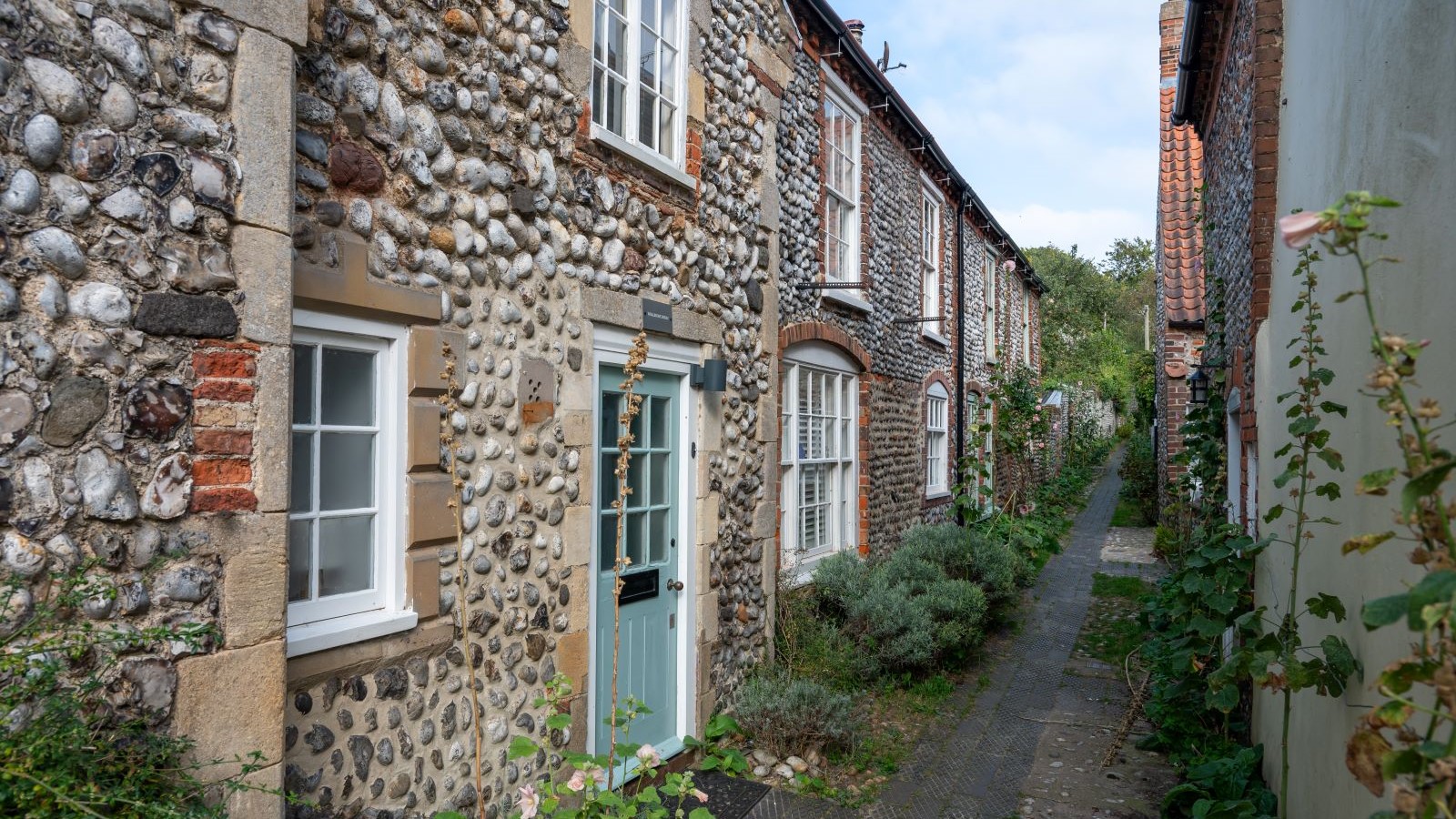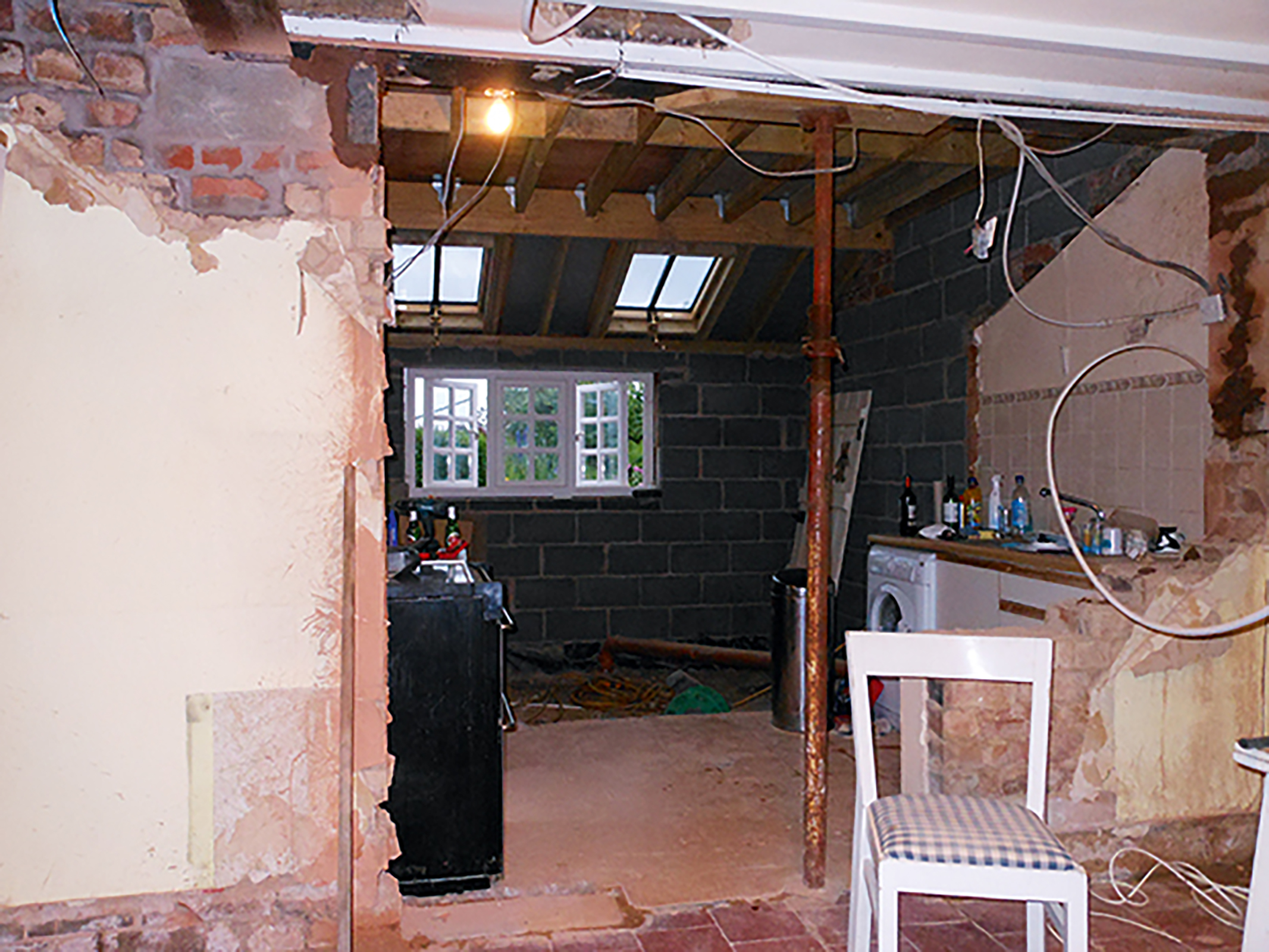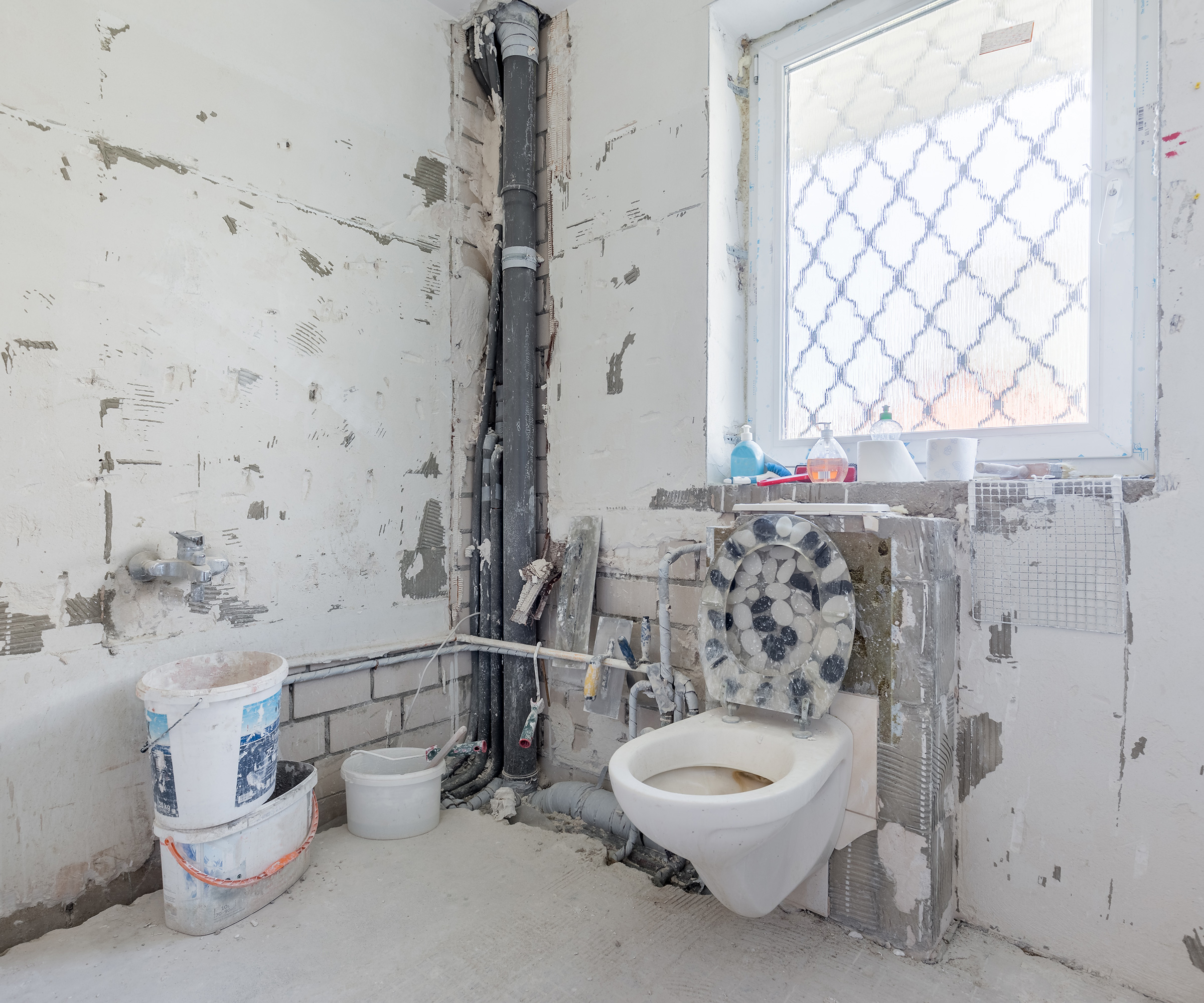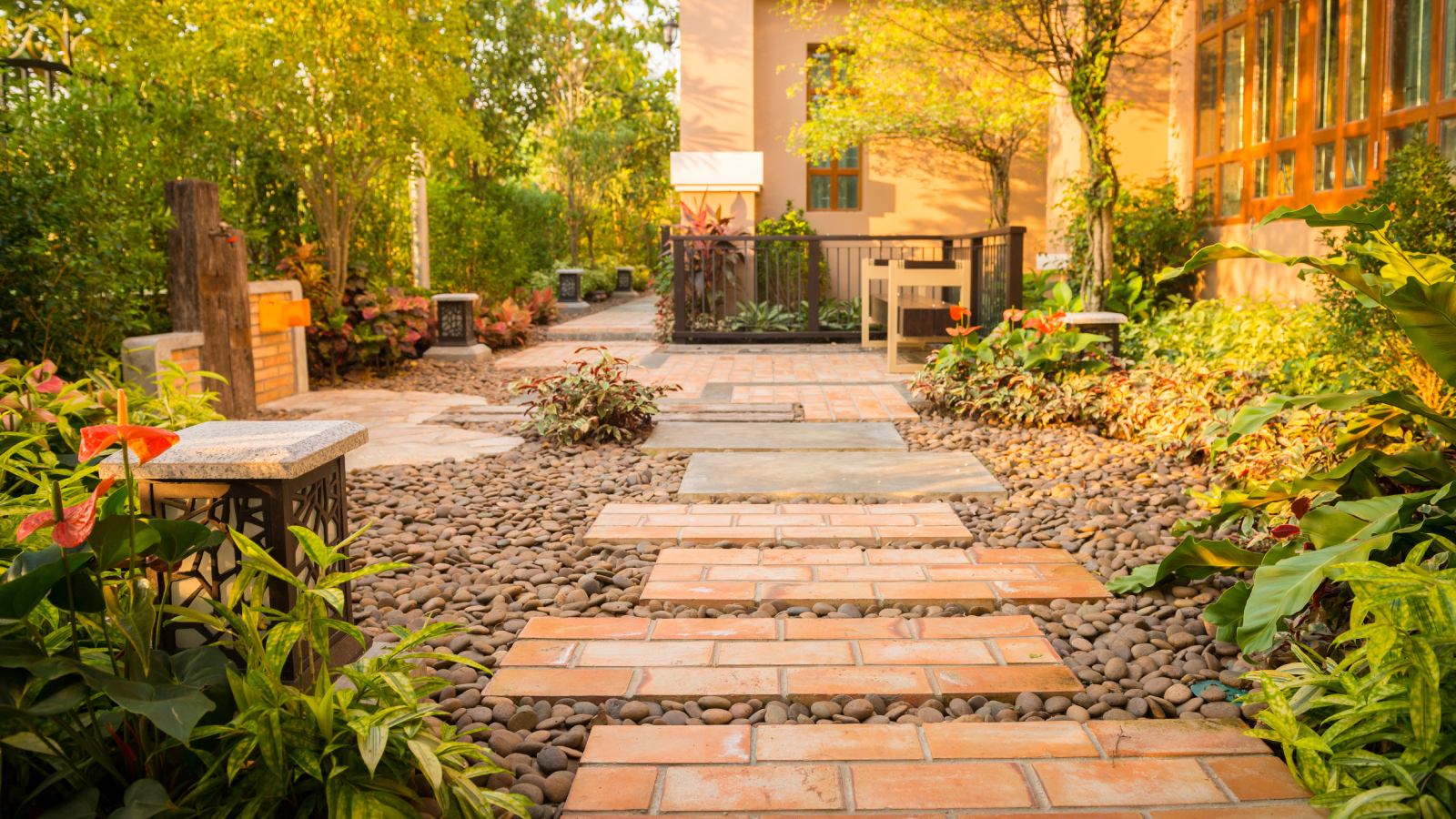Are you buying a house to renovate? Our guide explains everything you need to know before you take the leap
When you buy a doer-upper it can be a risky investment if you don't properly understand what you are potentially taking on. Our guide is here to help

Buying a house to renovate means seeing past its flaws to its potential. Do so, and it presents an opportunity to create the home you want, or one that’s more energy efficient, or that you can make money on.
However, there are issues additional to those that come up when you’re buying a house that doesn’t need extensive work. A doer-upper requires careful assessment from a financial and practical point of view so you can be sure it’s a viable project for you.
To help you weigh up the issues involved in buying to renovate, we‘ve put together a guide with the details you need.
Where to look for renovation opportunities
If you’re looking for a home to renovate, it can be easier to start off with a specialist site like Plotfinder.net. You can also browse the major property portals like Rightmove or Zoopla. Think about what type and size of property you want to renovate as well as where it should be to narrow down the search. You might find a renovation project through buying a house at auction – but in this case bear the differences in the buying process in mind.
It’s also worth visiting estate agents where you want to buy to let them know what type of project you’re looking for.
Why buy a house to renovate?

Subscribe to Plotfinder.net to access over 15,000 building plots and properties that could become your next project
There are a number of reasons why you might buy a house to renovate. First, it allows you to make your own choices among kitchens, bathrooms and more without the concern that comes with a renovated home of not getting your money back if you change things.
Alternatively, if the plot allows, it means you can buy a smaller home and expand it to the size you need. Equally, it’s an opportunity to create a home that’s energy efficient. You might also buy in order to sell at a profit, although this depends on careful management of the project from start to finish.
“The biggest advantage to buying a doer-upper is the purchase price,” says property and construction expert at MyJobQuote Thomas Goodman. “As they‘re typically £20,000 to £50,000 cheaper than homes that are already modernised, it can be the best way to get your foot on the ladder. But it does depend on where you live.”
On the downside are that renovation could cost more than you estimate, or the market could fall. Don’t underestimate the stress if you live there while working on the property either. “Even small renovations can create a lot of dust and disruption,” says Thomas.

Thomas Goodman has worked as a property and construction expert for MyJobQuote for six years and has worked in the construction industry for more than 20 years. Thomas continues to work on building projects, while also providing expert construction and property advice to industry professionals and DIY enthusiasts.

Assessing a house to renovate
There are plenty of advantages to buying a house in need or renovation, but it’s not a project to be taken on lightly. Below are the factors you need to think about.
Price
The price you should pay for a house in need of renovation needs careful calculation.
“Start by researching the area to determine the ceiling price for fully renovated homes on the same road or nearby,” says Robin Edwards, partner at Curetons. “Tools like Rightmove, Zoopla and the Land Registry can provide recent sold prices. It’s also important to understand property trends in the area, such as whether prices are rising, static or declining, and consider factors like upcoming developments or improved transport links.
“Next, evaluate the property’s current asking price by comparing it with recent sales of similar unrenovated properties,” he advises. “Look at how long the property has been on the market, as a longer duration could signal an opportunity to negotiate. Calculate an acceptable offer, ensuring you leave room in your budget for unexpected renovation costs.”
Don’t forget to factor in the hidden costs of buying a house, plus rent if you’ll need to do so while renovating.
“To determine the potential profit, subtract your total costs (the purchase price, renovation cost and fees) from the estimated resale value,” explains Robin. “A professional property developer would typically aim for a profit of at least 20 per cent, as this accounts for the time, risk and effort involved. For example, if the ceiling price is £500,000, and your total costs amount to £90,000, you would aim for a purchase price no higher than £330,000 to ensure an adequate profit.”

Robin Edwards is a partner at property buying agents Curetons and has been working in prime residential property for nearly 20 years. He regularly advises clients on the purchase and development of properties, including on the potential of renovating and extending their homes.
Cost of work
Assessing the likely costs is crucial to your calculations. Be thorough when viewing and don’t forget to count in the big-ticket items that bump up costs such as windows, boiler and radiators and electrics, Thomas Goodman recommends. While you should get a survey (see below), look for structural issues when you view such as big cracks in the walls inside or outside, gaps around windows or doors, and look and smell for signs of damp, he advises.
“If you think the house needs a lot of repairs or extensive modernisation or if it’s a house that you’re looking to extend or remodel, then it’s worth taking a builder around with you,” he says. “They’ll be able to spot things you’ve missed and give you an accurate assessment of the costs involved in renovating it.”
Note that the searches and reports carried out by your conveyancer can alert you to other costs. “Drainage searches can pick up issues such as the need to replace a septic tank or that you might need to move services to accommodate an extension,” says Thomas. “A flood report, meanwhile, may indicate that you need to carry out measures such as moving electrics further up the wall, fitting flood-resistant doors and windows, installing hard floors and landscaping the outside to improve drainage.” While this information will follow having an offer accepted, findings like this could allow you to renegotiate.
“The area the house is in can also determine some of the renovation costs,” adds Thomas. “Protected landscapes such as national parks and conservation areas tend to have more planning restrictions. Often, this means you need to use traditional materials such as flint, stone, slate and timber in your renovations, which can be more expensive than modern equivalents.”
There are other costs to consider. “Include professional fees for architects or planning permissions, and account for VAT if applicable,” says Robin Edwards. “It’s wise to set aside an additional 10 to 20 per cent of the renovation budget as a contingency fund for unforeseen costs.”
Feasibility and funding
Calling in pros for quotations as well as getting a survey (see below) will allow you to see if your plans are feasible. However, if you will need a mortgage when buying a house to renovate, note that it might be more complicated than for a property that doesn’t need extensive work.
“Most high-street lenders will only lend on properties that are habitable, which usually means having a kitchen and bathroom,” says Amadeus Wilson, head of short-term finance at mortgage broker SPF Private Clients. “With any kind of renovation project, it is almost always the case that you will require specialist funding, such as a self-build mortgage if you are starting from scratch with a plot or site with a derelict building that you plan to knock down, or bridging finance.
“Some specialist mortgage lenders offer renovation mortgages,” he says. “These mortgages work in a similar way to a self-build mortgage with funds released in stages as the work is done and the property increases in value.
“Bridging finance is another option; this is arranged via a specialist broker and you will need a defined exit strategy to repay the sum borrowed. This may be selling the property once it is renovated or remortgaging onto a standard home loan if you plan to live there yourself, or a buy-to-let if you are going to rent it out.”

Amadeus Wilson is head of short-term finance at mortgage broker SPF Private Clients. He has been helping clients buy property at auction since 2018. Before that, he worked as a mortgage broker for the previous five years.
DIY vs professionals
DIYing is possible if you have the skills but unless renovating is your occupation then it will have to be fitted in around work, slowing the project down and adding to the cost of renting if you need to do so while the work is carried out.
Otherwise you will need to find a builder with the right experience and skills for the project. A building contract is important and should include a date for completion.

Mistakes people make when buying a house to renovate
There are some common mistakes that come up when people buy a house to renovate, including not getting a survey (see below), and taking on too big a project in financial terms but also duration.
Failing to calculate costs carefully can lead to being unable to complete the project and not having a contingency fund is a common error. “Because problems can crop up unexpectedly and materials are subject to price fluctuations, you should always have a contingency fund available to dip into,” says Thomas Goodman.
Rushing into the renovation can be a mistake. “As long as it’s habitable, it’s worth spending time living in the property before you renovate it,” says Thomas. “The best way to renovate a house isn’t always the most obvious one. Living in the house first is the only true way to work out what needs improving in terms of layout and function.”
Why a survey is crucial when buying a house to renovate
It’s prudent to get a survey when you’re buying to renovate despite the fact that the property will undergo work. “Assuming that the building work you’re planning will press the reset button on your home’s current condition is risky,” says Charlotte Whincup, a director of Bloom Building Consultancy. “Even if you intend to replace much of the existing fabric with new materials, it’s important to know exactly what state the property is in before you start.”
The most detailed type of survey is worth the cost, according to Charlotte. “A building survey will flag up any issues that a less detailed inspection might miss, but which could impact both your renovation plans and your financial position,” she says.

Charlotte Whincup is a director of Bloom Building Consultancy, and a chartered building surveyor with a background in architectural environment engineering. Charlotte has extensive experience of working with properties in the high-end residential, industrial, commercial and retail sectors.
Understanding the house renovation costs you might face can help you assess whether you want to buy to renovate, and expert tips on how to renovate for profit will help you avoid investing in a money pit. While stressful, it can be worth it for more than making money. “It also gives you the opportunity to customise and decorate your home to suit your needs and tastes,” says Thomas Goodman.

Get the Homebuilding & Renovating Newsletter
Bring your dream home to life with expert advice, how to guides and design inspiration. Sign up for our newsletter and get two free tickets to a Homebuilding & Renovating Show near you.
Sarah is a freelance journalist and editor writing for websites, national newspapers, and magazines. She’s spent most of her journalistic career specialising in homes.
She loves testing the latest home appliances and products, and investigating the benefits, costs and practicalities of home improvement. She is an experienced renovator and is currently remodelling the ground floor of her new home.
She was Executive Editor of Ideal Home and has worked for Your Home and Homes & Ideas. Her work has published by numerous titles, including The Guardian, channel4.com, Houzz, Grand Designs, Homes & Gardens, House Beautiful, Homes & Antiques, Real Homes, The English Home, Period Living, Beautiful Kitchens, Good Homes and Country Homes & Interiors.
